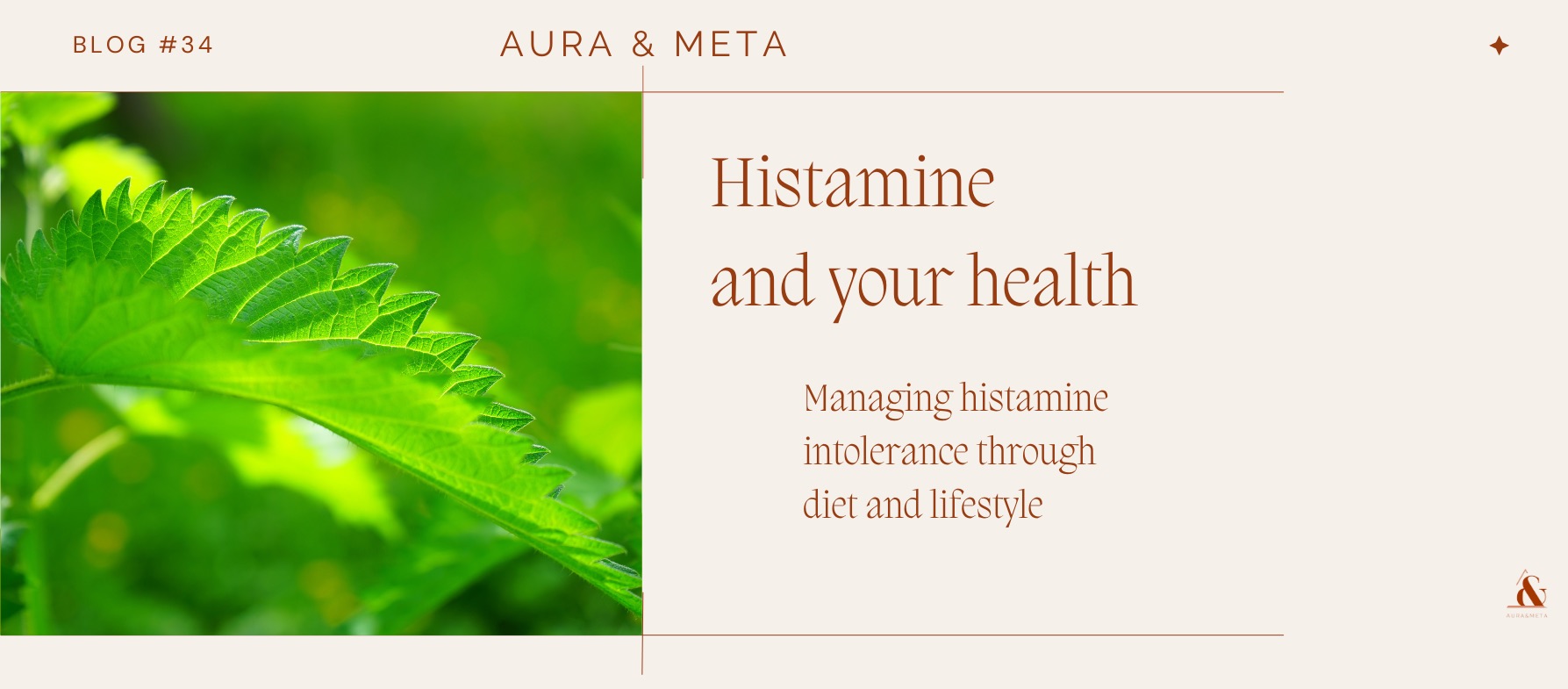In recent years, awareness around histamine intolerance has significantly increased, bringing to light how this condition affects numerous individuals worldwide. Characterized by an inability to break down histamine efficiently, histamine intolerance can lead to a myriad of challenging symptoms. In this blog, we’ll delve into how adopting specific dietary adjustments and lifestyle changes can manage these symptoms effectively, improving quality of life.
Understanding Histamine Intolerance
Histamine, a compound involved in our local immune responses, is found in various foods and is also produced by our bodies. Under normal conditions, enzymes like diamine oxidase (DAO) and histamine N-methyltransferase (HNMT) metabolize histamine. However, if these enzymes are underactive, or if the body’s histamine load becomes too high, symptoms of intolerance can manifest. These symptoms might include headaches, skin irritations, digestive problems, and more severe allergic reactions.
Genetic Foundations of Histamine Intolerance
Genetic variations, or single nucleotide polymorphisms (SNPs), in the genes responsible for producing DAO and HNMT enzymes can significantly impact your body’s ability to manage histamine levels effectively. Understanding these genetic factors is crucial in personalizing treatment plans for histamine intolerance. Learn more about our genetic testing services.
Dietary Adjustments to Manage Histamine Levels
Identifying and Avoiding High-Histamine Foods
One of the first steps in managing histamine intolerance is identifying and minimizing high-histamine foods. Common culprits include aged cheeses, alcohol (especially red wine and beer), fermented foods, and certain processed meats. By keeping a food diary and noting symptom flare-ups, individuals can pinpoint specific foods that trigger their symptoms.
Embracing Low-Histamine Foods
Equally important is focusing on what to eat. Incorporating fresh meat and fish, non-citrus fruits, and freshly cooked vegetables can help maintain a balanced diet without exacerbating histamine intolerance. Cooking meals at home ensures freshness and minimizes histamine build-up that can occur in leftover foods.
Lifestyle Changes to Support Histamine Metabolism
Enhancing Enzyme Activity
Supporting the body’s ability to metabolize histamine can also involve supplementing with nutrients that enhance DAO and HNMT activity, such as vitamin B6, copper, and vitamin C. At our clinic, we specialize in addressing histamine-related issues and can provide expert guidance tailored to your specific health needs.
Stress Management and the Histamine Bucket
Stress management is another critical aspect of managing histamine intolerance. Stress can exacerbate symptoms by triggering the release of stored histamine in the body. Moreover, various factors such as alcohol, allergens, and environmental irritants can fill your “histamine bucket,” leading to an overflow if not properly detoxified. Regular practices such as yoga, meditation, and other relaxation techniques can help manage stress and potentially have an effect on histamine release.
The Role of Personalized Healthcare
Given the complexity of histamine intolerance, a personalized approach is often necessary. The functional medicine model, which looks at the unique interactions in each person’s body, can offer tailored solutions that consider individual dietary needs, lifestyle factors, and underlying health conditions that may contribute to those symptoms.
Managing histamine intolerance through diet and lifestyle changes not only alleviates symptoms but also enhances overall well-being. By understanding personal triggers and how various foods and stress impact histamine levels, individuals can lead a healthier and more comfortable life.
Empower yourself with the knowledge to manage histamine intolerance effectively. For more guidance on personalized dietary plans and lifestyle adjustments, visit our page to know more about our programs or book a free discovery call to get tailored advice based on your unique health needs.
Take Control of Your Histamine Intolerance” “Learn more about how personalized dietary and lifestyle strategies can help manage histamine intolerance. Explore our services and book a personalized consultation today to find relief and improve your quality of life.

